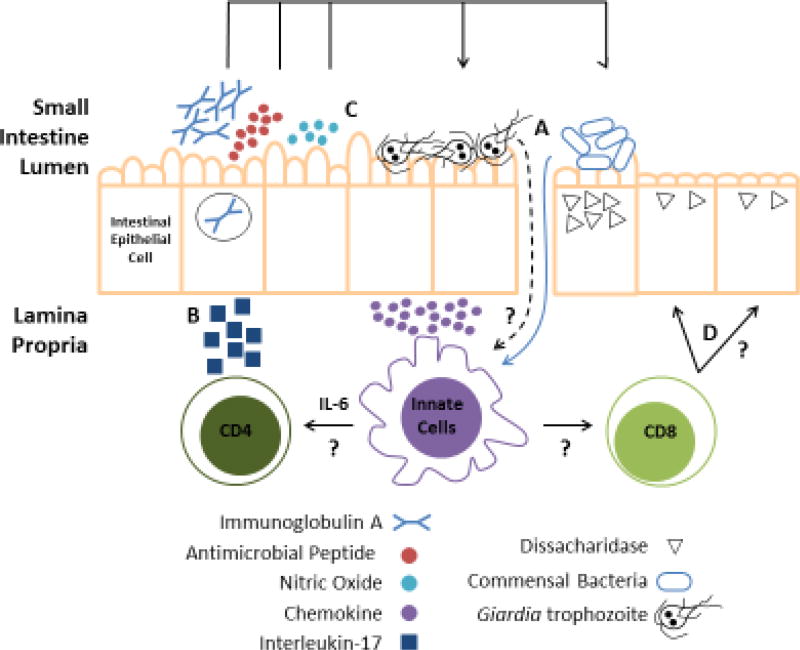Figure 2. The multiple roles of intestinal epithelial cells during Giardia infections.
The intestinal epithelium normally provides a secure barrier against invading microbes. (A) During Giardia colonization of the small intestine, permeability increases resulting in the translocation of intact microbes and/or microbial antigens into the lamina propria. Innate immune cells (e.g., macrophages and dendritic cells) become activated and initiate the downstream adaptive responses. Which host receptors and parasite ligands serve to activate these responses are unclear, and other than IL-6, the cytokines which drive development of adaptive responses are unknown. (B) Adaptive responses include IgA production by B cells, IL-17 production by CD4+ Th17 cells and activation of CD8+ T cells, which contribute to protection or immunopathology as described in the text. In response to IL-17, intestinal epithelial cells (IECs) secrete antimicrobial peptides and transport IgA into the lumen where they can aid in Giardia protection, but also impact the commensal microbes. (C) Additionally, in response to Giardia, IECs can produce nitric oxide to aid in protective immunity and also release chemokines to recruit innate immune cells. (D) Activation of CD8+ T cells induces pathological symptoms including microvilli shortening and reduced dissacharidase activity through an unknown mechanism.

